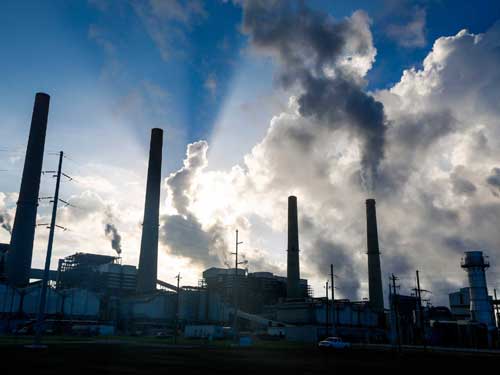Site Prices Update
Last Updated28th June 2022
All calculations on this site are based on current fuel prices, they are checked regularly and calculations are automatically updated.
The costs calculated based on these fuel prices should be regarded as 'good estimates', given that fuel prices vary in different parts of the county and at different time of the year.
The calculations also have different levels of accuracy depending on the nature of the calculation. For example calculating the energy use of a known power output TV is very easy compared to calculating the effect on energy savings when insulating a cavity wall.
Site Calculations
Set Your Own Prices
User PricesFor several of the fuel prices on this site you can now set your own prices and all the calculations on the site will adjust accordingly.
Set Prices
At Confused About Energy we aim to provide practical, impartial advice on all aspects of energy usage, climate change and ways to save money on energy bills.
All calculations on this site are based on current fuel prices they are checked regularly are automatically updated and were last changed on:-
28th June 2022
The costs calculated based on these fuel prices should be regarded as 'good estimates', given that fuel prices vary in different parts of the county and at different time of the year.
The calculations also have different levels of accuracy depending on the nature of the calculation. For example calculating the energy use of a known power output TV is very easy compared to calculating the effect on energy savings when insulating a cavity wall.
Site Calculations
| Electricity | £0.271 per unit (1 kWh) |
| Economy Electricity | £0.094 per unit (1 kWh) |
| Gas | £0.072 per unit (1 kWh) |
| Domestic LPG | £0.122 per unit (1 kWh) |
| Heating Oil | £0.104 per unit (1 kWh) |
| UK Grid CO2 Emissions | 0.233 kg per kWh used |
The main units used in this site are in the table below, For a complete explanation of power and energy Read More.
| Unit | Name | Detail |
|---|---|---|
| W | Watt | Unit of Power |
| kW | Kilowatt | 1000 watts |
| kWh | Kilowatt hour | Measure of Energy |
| L | Litre | Measure of Volume |
Carbon Capture 12046
Editorial
Please use twitter to ask a question Message @@EnergyThinking
The following link by Loren Cobb from the Quaker Economist titled “The History and Future of World Energy”, provides what I regard as one of the best graphical overviews I have seen on past present and future power generation and where it will come from. It excludes any notion of nuclear fusion but this is understandable given that it is not yet feasible! On page two of the article there is a graphical interface where you can alter the parameters changing some of the assumptions for yourself to get a different picture of the future.

One of the clear observations is that far from reducing our future dependence on fossil fuels over the next 30 years we will in fact increase our demand. There are also sufficient reserves to continue to do this and there is a good profit for the mining companies to continue to supply this raw material to the power industry. The conclusion of the article by Loren Cobb and another one on this site is that with an increasing population and worldwide technological capability there will be an increased demand for energy over the next 30 years. And much of this will be provided by burning fossil fuels. So far from reducing carbon emissions we as a planet will be increasing them. This is inevitable.
As an alternative suggestion to reducing energy consumption and “green power generation technology” why don’t the policy makers in the world get behind carbon capture technology and pull out CO2 from the flue gasses of the power stations? Apparently 80 to 90% could be removed (wikipedia).; The main reason is probably economic since the cost of power generation would increase.
US and Chinese policy makers could force so much change here, and we are all rather at the mercy of it.
I agree with comment by speckl in principle, but you can just bet that they will rely on carbon sources because they are the cheapest, so if as the graphs indicate it is going to happen, and history also suggests it will happen then we have to capture the carbon. But you are right it is not the best way forward.
I suppose my concern with Carbon Capture and Storage is when it is considered as a viable alternative to the more fundamental aim of reducing overall reliance on carbon-heavy energy sources. It had become an increasingly strong argument that CCS will have to play a role if we are to avoid large levels of additional CO2 from coal-burning industries in emerging economies. However, it is when it is treated as a preferred option to improved energy efficiency and increased investment in renewable technologies in countries such as the UK that I begin to part company with hardcore CCS supporters.
World Climate Change Metrics
(2021)
↑
Annual
+11353 TWh↑
Decade
2040 149000 TWh to 171000 TWh
(2021)
↑
Annual
+2.6 Gt↑
Decade
2040 36 Gt to 46 Gt
(2021)
↑
Annual
+835 million↑
Decade
2040 8.45 billion to 9.5 billion
(2021)
10+Gt CO2
↑
Annual
+1168 TWh↑
Decade
2040 10000 TWh to 13000 TWh
(2021)
↑
Annual
+24 ppm↑
Decade
2040 450 ppm to 500 ppm
(2022)
↑
Annual
+0.26°C↑
Decade
2040 1.5°C to 2.5°C
(2020)
–
Annual
+46.5 mm↑
Decade
2040 150 mm to 200 mm
(2020)
↓
Annual
0.95 million km2↓
Decade
to 2 million km2
2040 2 million km2
to 0 million km2
(2020)
↓
Annual
-1600 Gt↓
Decade
2040 -7000 Gt to -10000 Gt
(2020)
↓
Annual
-2500 Gt↓
Decade
2040 -7000 Gt to -10000 Gt
Each Decade
↓
Decade
(2019)
↑
Annual
+2169 TWh↑
Decade
2040 9000 TWh to 12000 TWh
(2018)
↑
Annual
0.96 Gt↑
Decade
2040 5.4 Gt to 7.2 Gt
≅4.6 GtCO2 emissions prevented
Example 50% gas power generation substituted with renewables
≅2 GtCO2 emissions prevented
≅3.7 GtCO2 emissions prevented
Example 50% gas power generation with CCS
≅1.6 GtCO2 emissions prevented
(2017)
↑
Annual
543 TWh↑
Decade
2040 1250 TWh to 2200 TWh
(2015)
↓
Annual
0.336 million km2↓
Decade
to 39.7 million km2
2040 39 million km2
to 39.5 million km2
























Comments and Questions